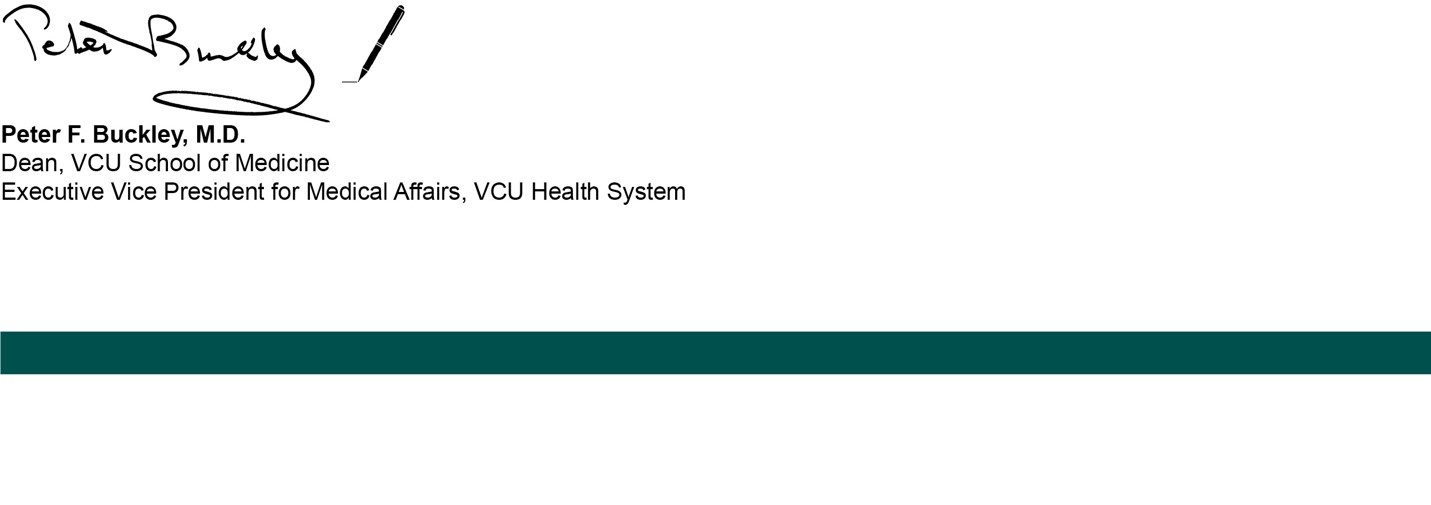Dear Colleagues-Friends,
This past summer, we as a community reaffirmed our commitment to creating teaching, learning and patient care environments that honor, respect and celebrate the rich and diverse nature of our organization and the people we serve. As we work to turn dialogue into action, I am grateful to our medical students who recently brought to our attention how we should be incorporating the use of preferred pronouns into our collective style of communication. Their insightful recommendations were brought to our new School of Medicine Inclusion Council.
When someone is referred to with a pronoun that they do not prefer or identify with, they can feel disrespected, invalidated, dismissed and alienated, undermining their sense of inclusion and belonging. Allowing each of us to be seen, understood and respected for who we truly feel we are is at the heart of VCU’s Call Me By My Name initiative, which allows faculty, staff and students to use names other than their legal name, identify with the gender they know themselves to be and utilize the pronouns that best fit them.
In our daily interactions, recognizing and correctly using someone’s preferred pronouns is one of the most basic ways to show your respect for them. Many faculty, staff and students are already including their preferred pronouns within their email signature or their display name on Zoom to proactively communicate these preferences to both new and established colleagues and to alleviate the need for assumptions. The need to know and use our patients’ preferred name, as well as their gender identity, is also being taken into account as the health system works to build out our new Epic electronic medical record, which will be implemented at the end of this year.
Our collective diversity, equity and inclusion statement reaffirms “the core values of human dignity and of mutual, unconditional respect, and we acknowledge our responsibility to condemn racism and all forms of discrimination.” It is the responsibility of all of us – as educators, researchers, clinicians, learners, administrators and staff – to bring this statement to life through the ways we interact with one another and our community on a daily basis.
Because of the diverse nature of our institution, there are broad-ranging beliefs, ideologies and outlooks among all of us. Although we might have differing opinions, we must continue to bring mutual and unconditional respect into our dialogue with one another, which includes how best to address all of our colleagues, learners and patients.
You are encouraged to read more about our commitment to the ideals of diversity, equity and inclusion on our website.
Respectfully,
